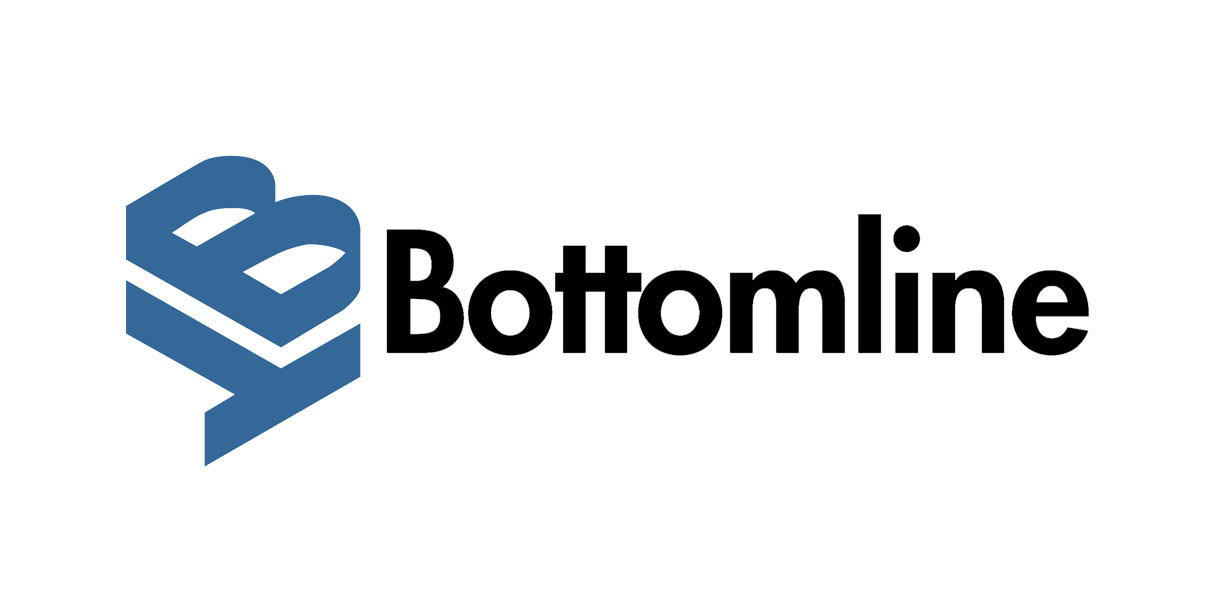Published
- 02:00 am

Fenergo, the leading provider of digital transformation and client lifecycle management (CLM) technology, today announces the launch of Fen-Xcelerate, a lower cost, cloud-based version of Fenergo’s CLM solution, tailored specifically to mid-tier and boutique commercial, business and retail banks seeking to accelerate digital transformation.
The cloud-based solution, powered by Amazon Web Services (AWS), delivers frictionless, end-to-end customer journeys and client lifecycle management on a single platform.
Fen-Xcelerate’s unique ecosystem is comprised of out-of-the-box, best-of-breed integrations with partners including Salesforce, Refinitiv’s World-Check One, RDC, and DocuSign. The solution also supports integration with transaction monitoring services, Fenergo’s own customer-facing portal and core banking systems, amongst others.
Many mid-tier commercial, business and retail banks lack the technology required to offer digital services and open accounts remotely, while being able to meet regulatory obligations and detect financial crime. Validated by the industry, Fen-Xcelerate can be quickly deployed to digitalize account opening while delivering a seamless customer experience and regulatory compliance across 100+ jurisdictions.
James Follette, Global Head of Commercial, Business & Retail Banking, Fenergo, said: “With Fen-Xcelerate, mid-tier and boutique banks can benefit from Fenergo’s deep financial services heritage and best-in-class customer relationship management (CRM), data, screening and ID&V integrations in one solution. By leveraging Fen-Xcelerate the goal posts for digitalization within these banks could move from 18 months to just weeks.”
Adam Kupperman, Global Head of Partnerships, RDC, said: “The ability for such banks to incorporate market leading risk screening, transaction monitoring, ID&V and information solutions is a challenge, as most do not desire to integrate standalone solutions, plug them independently into their technology stack and try to make the whole ecosystem operate seamlessly together. The beauty of Fen-Xcelerate is that Fenergo provides customers with a seamlessly integrated platform for Know Your Customer (KYC) and Anti-Money Laundering (AML) processes, including RDC’s best-in-class customer and third-party risk screening capabilities.”
Fen-Xcelerate is pre-configured to greatly reduce implementation costs and deliver the following benefits:
- Rapid deployment with limited configuration in 6-12 weeks
- Faster digital account opening and customer journey management
- Improved operational efficiencies and frictionless customer journeys
- Streamlined AML, KYC, Counter Terrorist Financing (CTF) compliance
- Ability to manage risk by exception for straight through processing, serving customers faster
- Over 300% ROI in three years[1]
- Access to Fenergo’s community of global banks and regulators
Key features are as follows:
- Fully managed cloud service in partnership with AWS
- One consolidated solution for digital transformation
- Industry-validated rules engine covering regulations in 100+ jurisdictions
- Centralized data and document management
- Option to add additional integration modules, such as transaction monitoring
- Automated KYC, AML, CTF compliance
Fenergo has been recently certified as an AWS Financial Services Competency Partner. For more information on Fenergo’s partner ecosystem which includes IBM, Salesforce, Accenture, PWC, Cap Gemini, DXC Technology and Luxoft, amongst others, click here.
To learn more about Fen-Xcelerate click here.
[1] subject to no customization
Related News
- 06:00 am

Bottomline (NASDAQ:EPAY), a leading provider of financial technology that makes business payments simple, smart and secure, revealed today that 58% of financial decision makers in businesses surveyed across Great Britain view financial loss due to payment fraud as ‘part and parcel of running their business.’ Of those surveyed, 81% were unable to recover more than half of their losses caused by fraud, a figure which rises to 88% for small businesses alone.
With COVID-19 related fraud scam cases on the rise, small and medium businesses continue to lose more money over time due to payment fraud – their total losses having increased by 14% and 38% respectively from 2019 to 2020. In comparison, decision-makers at enterprise organisations recorded a 4% decrease in 2020, with total fraud losses dropping from £349,077 in 2019 to £336,408 in 2020.
The findings stem from Bottomline’s fifth annual Business Payments Barometer, which reveals that whilst the money lost due to fraud has increased, individual occurrences have decreased. The number of respondents indicating that fraud impacted their business has dropped from 45% in 2019 to 34% in 2020, with the reduction greatest among large corporates and enterprise organisations, who reported a 22% and 25% drop respectively in fraudulent cases versus 2019. This can be attributed to the fact that big businesses are more likely to use automated payment protection measures than their smaller business counterparts.
Real-time payments hit a bump
Despite last year’s Payments Barometer indicating that over one third (37%) of respondents were planning to adopt real-time payments within their businesses in the next 12 months, the results from 2020 paint a slightly different picture. Claimed usage among respondents remains flat, with 53% in 2019 and 50% in 2020 saying that they are using real-time payments regularly.
In light of the current uncertainty, businesses are likely concerned that real-time payments come with real-time fraud problems, such as checks around Authorised Push Payment (APP) fraud or human error. This fear may underscore why some businesses are not considering real-time payments to service more general outbound payments, and why they are not using the technology to its full potential. In fact, a number of decision-makers indicated that their companies only use real-time payments to fulfil routine requirements such as: making payroll payments (45%), paying taxes (46%), or paying regular invoices from suppliers (48%). That said, an overwhelming majority of 89% said their businesses continue to pay suppliers late, a slight, but disappointing improvement from 92% in 2019.
“Late payments can have a critical impact on businesses and in time of crisis such as the current COVID-19 pandemic, smaller players simply can’t afford the repercussions,” said Nigel Savory, Managing Director, Europe, Bottomline. “Given the range of payment methods available such as real-time payments, the prompt payment code, ‘duty to report’ legislation and sensible business practice to maintain continuity of supply, there is no reason why small businesses should be placed at any additional risk from larger corporates hoarding cash reserves. In fact, our Barometer results show that 67% of current real-time payments users note that it can help them with cash-flow management and unlock cost savings.”
Manging international payments during times of crises
The survey data suggests that international payments are likely to decrease across businesses as well. Down four percentage points on 2019’s research, just under half (49%) of financial decision-makers plan to continue making international payments, with 23% planning to stop altogether and only 14% suggesting they will start making international payments in the next 12 months.
Beyond the impact of Brexit coming into force towards the end of 2020, the downturn in international payments reflects the complicated processes and friction that businesses are facing. Just under half of decision-makers suggested they face difficulties tracking their payments (44%) or paying international suppliers on time (43%).
It is promising, however, that 20% stated their reason for halting payments was due to international suppliers failing sanction checks, suggesting that businesses are starting to own up to their role in the sanctions process as they take on more responsibility that has historically laid with the banks alone.
While 70% of financial decision-makers agreed that responsibility for sanction checking was with the banks in 2019, the figure dropped to 56% in 2020. Businesses are more prepared to share the load, with 71% suggesting they are happy to take on more responsibility for implementing anti-money laundering regulations. However, there is some variation by business size, with 79% of decision-makers in enterprise organisations more willing to share the responsibility, compared to 62% of decision-makers at small businesses.
Role of technology set to accelerate in a changing world
The Barometer also shows a clear acceleration towards digitisation. As businesses look to manage the ongoing impact of the COVID-19 pandemic, this becomes even more critical. It is evident that this trend has been emerging for some time, with mobile payment technologies topping the list for the second year in a row as most likely to have the greatest influence on payment processes over the next 12 months. Easier access to technology also jumped up the rankings from fifth to second place.
This could, in part, be influenced by financial decision-makers’ expectations and experiences around the ‘consumerisation’ of business payments, a trend observed in last year’s report. Whilst regulators were stepping in to drive Open Banking and PSD2 forward in the effort to make it easier for businesses and consumers to use tablets and smartphones, the 2020 report finds that businesses still feel unprepared for these new initiatives. Only 59% of respondents currently feel ready for Open Banking, down 8% from 2019.
“It is clear that more support and education around the benefits of these initiatives is needed,” said Savory. “There is an opportunity for banks and technology solution providers to fill this void and help businesses understand what actions they need to take and the role they can play in delivering longer-term transformation to the industry. As we continue to navigate the current COVID-19 pandemic, businesses most able to embrace digitisation, personalise customer experiences and adopt technology that engages intelligently with its customers will be in a strong position for the future.”
Related News
- 04:00 am

More and more consumers are going online to purchase everything from groceries and food delivery to home improvement goods, apparel and entertainment; as they do, merchants are focused on providing an increasingly seamless experience. Today, Mastercard announced that Amazon customers in 12 countries across North America, Latin America, Middle East and Europe will have their stored card credentials tokenized. By replacing a consumer’s physical card number with a token, payment information is unique to each individual transaction and can be used only by the merchant that requested it. Amazon will begin using Mastercard tokens for transactions through 2020.
The rise of e-commerce means more and more consumers are saving and managing their card details across multiple websites. Amazon and many other merchants worldwide use Mastercard’s tokenization technology to ensure the cards consumers store on file stay seamlessly up to date. Unlike physical cards, network tokens do not expire – when consumers receive a new physical card from their bank, their credentials are automatically updated, eliminating the hassle of reentering their card numbers and eliminating interruptions during checkout.
Tokenization enables a best-in-class user experience by creating visual cues, displaying familiar card art that instills trust in a consumer’s preferred payment method. As Mastercard makes issuer card artwork available for every user, it helps consumers choose their preferred payment method more efficiently and increases the likelihood of a purchase being completed. According to research from Mastercard and Kantar, 80% of cardholders are likely to complete a purchase when an image of their specific credit card is shown1.
2020 has seen consumers worldwide accelerate their shift to digital payments, making it more important than ever for e-commerce platforms to make the checkout experience simple and convenient. Mastercard Digital Enablement Service (MDES) provides the foundation for a frictionless experience, eliminating the frustration of managing card information and reducing shopping cart abandonment.
“The behavioral shift that we are seeing has accelerated in recent months, but it’s a product of our work to create the infrastructure and partner ecosystem, for the digitally-savvy consumer and forward-thinking businesses like Amazon,” said Jorn Lambert, Executive Vice President, Digital Solutions, Mastercard. “Mastercard’s work with Amazon and others is a testament to the strength of our well-established digital product suite – we create consumer journeys that improve the shopping experience and boost approval rates.”
MDES is live with more than 2,600 issuers and 1,200 token requestors around the world, and tokenization of a merchant’s cards on file is accelerating as we continue to add global players like Amazon to deliver this solution at scale. Amazon is adopting Mastercard tokens in the United States, Canada, United Kingdom, Brazil, France, Germany, Italy, Mexico, Netherlands, Spain, Turkey and United Arab Emirates; consumers making purchases on the Amazon online stores serving these countries will experience the benefits of tokenization.
1 Mastercard online study conducted by Kantar and fielded between August 30 and September 20, 2019. All US participants in the study are between the ages of 18-100, shop online regularly (3+ times in past six months), own a Mastercard credit or debit card product, and use guest checkout or a stored card at least some of the time.
Related News
- 03:00 am

Today, open banking pioneer Nuapay, a Sentential company, announces its partnership with Felloh!, UK-based startup with a mission to transfer £1bn in reduced payment processing costs to donations for charities and social enterprises. The partnership enables social enterprise Felloh! to premier its open banking payments button. The new solution will enable consumers to effortlessly donate to charities, with over 50% of beta testers finding it easier to use than PayPal.
In 2019 alone, the UK’s total B2C e-commerce market reached £233 billion, of which £2.33 billion was lost in processing costs and card fees (using a conservative estimate of 1% of total transaction value). 2018 saw £10.1 billion given to charities in the UK, meaning £101 million was lost in fees and costs instead of contributing to charitable services.
Any charity could share a list of services - including calls with vulnerable people, food for the hungry or education for the young - where this money could have been better spent. With a third of charity supporters in the UK having donated more money than usual during the COVID-19 crisis and an uncertain economic climate it's crucial for the third sector to be able to fundraise efficiently.
Founded by a group of furloughed entrepreneurs, Felloh!’s new open banking based solution will charge charities 80% less than other online donation platforms - already attracting the attention of the Spotlight on Africa.
By utilising Nuapay’s FCA regulated open banking payment platform, Felloh! can strip out avoidable processing costs charged by card schemes and enable a higher percentage of donations to be received by charitable causes. A £50 donation made on the Felloh! website incurs a 25p processing cost, in contrast to the incumbent fundraising websites, which charge £1.15 on the same donation to cover payment processing. Payments are transferred in real-time and reconciliation is fully automated, reducing the administrative burden on charities and social enterprises. Charities can also opt to have GiftAid automatically calculated in a HMRC-friendly presentation.
In addition, the Felloh! pay button can be integrated into charities’ and retailers’ websites. Consumers can donate directly to charities by choosing the Felloh! Button on their website and approving the payment in their banking app in seconds. This creates a smoother and faster donation experience, ensuring that more of the donation goes to the chosen charity.
On retailers’ websites, consumers can choose to checkout with the Felloh! Button. This not only enables a low-friction payment experience for shoppers, but allows retailers to reduce their payment processing costs by avoiding card scheme fees. For every payment taken online, 10p will be diverted to an escrow account for their selected charity. SMEs or charities in offline environments can also collect payments via QR codes, which consumers scan using smartphones. This reduces upfront costs for SMEs, as they no longer need to invest in costly hardware card terminals.
Using Nuapay’s platform, all transactions will be fully Strong Customer Authentication (SCA) compliant, reducing the risk of fraudulent transactions for both charities and consumers.
Will Bicknell, Founder at Felloh! said: “We asked beta testers if they would use the Felloh! button as a payment method for online goods and an astounding 96.8% said yes. This confirmed our mission was one of longevity, and not just a lockdown project. Our pursuit is to change the way people make digital payments while simultaneously providing a better donation platform for social enterprises and charities. We selected Nuapay as our partner due to its extensive functionality and service levels - no other platform could also provide current accounts for charities to manage their donations through.”
Nick Raper, Head of UK at Nuapay, said: “We’re always delighted to be presented opportunities with charitable agendas and when Felloh! approached us we immediately recognised its potential. The work Felloh! is doing will go a long way in demonstrating the capabilities of open banking platforms while revolutionising the way charities are able to accept donations.”
Robin Bradley, Trustee of Spotlight on Africa, said: “Working with Felloh! means for every £30 donation we save transaction costs that can provide an extra 3 meals to the children we support in Uganda. We are also excited about a new source of donations via their payment button with retailers and delighted to be one of their earliest partners.”
Itself a social enterprise, once Felloh! has covered its own costs it will give a minimum of 50% of profits to charitable causes.
Related News
- 09:00 am

BPC today announced that it has joined Visa’s Fintech Fast Track Program, which makes it quicker and easier for fintechs to leverage Visa’s global payments network and introduce new payment experiences. This strategic initiative is a response to the surge in demand among fintech players to enhance their product propositions, expanding beyond their core businesses.
BPC joins Visa’s Fintech Fast Track Program as preferred technology enablement partner, providing essential technology that lays the foundation for fintechs to build their own products. As a leader in payment solutions and services, BPC has unrivalled payment expertise and its robust SmartVista platform is adopted in more than 80 countries.
By joining the Fintech Fast Track Program, fintechs from APAC, EMEA and LATAM can connect to BPC and gain access to robust, secure and instant payments solutions through VisaNet, in addition to value-add connections with national payment systems and governments to offer a differentiated retail, commerce or business customer experience. BPC’s SmartVista platform is also certified under the Visa Ready program.
BPC will provide fintechs with software as a service (SaaS) or processing as a service (PaaS) models using its new paytech Radar Payments’ international processing centre. This centre is already hosting numerous fintechs, payment service providers (PSPs) and neobanks, enabling them to go to market faster, with lower operational costs and a highly competitive minimum viable product.
Jane Loginova, co-founder of Radar Payments by BPC, shared her view: “As a private organisation, we empathise with fintechs facing the challenge of making the right technology investment to launch a compelling proposition while limiting cash flow risk. We have designed a payment as a service model leveraging VisaNet that makes it possible for fintechs to launch a fully-fledged financial offering without having to invest in their own infrastructure or acquire complex payment expertise. We handle all payment functions so fintechs can focus on their core business and the customer experience.”
Peter Theunis, co-founder of Radar Payments by BPC, commented: “We are proud to partner with Visa and join the Fintech Fast Track Program to spur the creation of new commerce and payment experiences. We have the capability to help launch a fintech, PSP or neobank in a matter of weeks through our white-label payment services. As our name suggests, we fly under the radar of our clients to respond to market changes with agility so that they can focus on business growth. While the cost to launch is dramatically reduced, the offering is not. Our technology, cloud expertise, certification and experience with Visa makes it possible to co-innovate and enable these new players to go to market faster in a highly competitive payment world.”
Visa’s Fintech Fast Track program allows both new and established businesses to leverage the speed, security, reliability and scale of Visa’s global network to get up and running quickly, shortening the process from months to weeks. It has extended its coverage to include Visa Direct origination.
The program provides turnkey access to Visa’s ecosystem partners, online licensing and APIs, as well as extensive go-to-market tool kits, online education and expert advice to help fintechs scale their business with peace of mind. Since expanding globally in mid-2019, the Fintech Fast Track program has grown by 280%.
Related News
- 02:00 am

Global fintech firm, Gresham Technologies (Gresham), has appointed Marc Binck as Head of Cloud Services to accelerate the firm’s cloud strategy across global markets.
In his new role, Marc will be responsible for the continuous delivery and integration of cloud services across the entire Clareti platform of data reconciliation, cash management and payments solutions.
Previously Director of Operations, Cash Management, Marc has been instrumental in developing Clareti’s multi-banking connectivity arm over the last two years. He will now focus on cloud migration to enable Clareti users to classify, authenticate and reconcile a diverse and complex range of data types in the cloud in real-time.
Catalysed by remote working environments and a renewed regulatory focus on cloud adoption in recent years, demand for agility and delivery-at-pace, scalability for business growth and 24/7 access is rising among banks, asset managers and capital markets firms.
Marc comments: “Market volatility caused by the COVID-19 crisis means firms are now facing unimagined volumes of data on a daily basis. Gresham’s public cloud offering provides the elasticity of scale required to navigate these challenges, so our existing and future customers can focus on what matters most; growing their businesses.”
Neil Vernon, Chief Technology Officer, adds: “It’s essential that we continue to provide access to cutting edge technology as well as unrivalled market expertise for our customers. Gresham’s public cloud offering enables us to help firms across the cloud maturity spectrum, from those looking to migrate away from legacy technology onto existing cloud providers or to our own public cloud – and do so 100% securely and remotely. Our approach to cloud means we’ve been able to onboard our customers virtually, without meeting teams face-to-face – a crucial element of the new normal we now operate in.”
The announcement comes off the back of a tier one bank contract win for the firm and successful FY2019 results, in which it reported a 30% increase in Group revenues to £25m and twelve new Clareti wins in 2019.
Related News
- 04:00 am

The research team at Amun Ltd, the short and leverage crypto token issuer, has published one of the most extensive studies (https://blog.amun.com/amun-2020-derivatives-and-tokens-benchmarking-survey/) on the state of derivatives, leverage and short tokens to-date using data from a ground-breaking survey of 629 participants. The key finding was that 57.9% of participants were either neutral, unsatisfied, or very unsatisfied with their current experience of crypto asset derivatives. In addition, the research shows that 78.1% of crypto traders were familiar with leveraged tokens. Moreover, the survey reveals that there is a significant gap between the desires of crypto traders and the availability and abundance of instruments to fulfill such desires. For those that already trade crypto derivative products, only 28.8% of users were satisfied with the experience. Unsatisfied users identified bad user experience, confusing processes, and hidden fees as main pain points and noticeably 34.7% of participants noted that they found the process of margin calls unclear.
When users were asked about the level of leverage they would like to trade, the distribution was relatively evenly distributed across 2x (28.2%), 3x (22%), 5x (22.4%) and 10x (27.5%) with slightly higher preferences for lower and higher leverage levels, according to the results of the survey. Noticeably, users preferred underlying crypto assets for such leveraged tokens to be skewed towards BTC (25%) and ETH (26.2%), with other crypto assets having generated much lower interest from participants.
Based on the findings of the study, Amun officially launches four additional leverage tokens today, allowing users to conveniently implement their trading strategies on the largest two crypto assets — Bitcoin and Ether. Following the successful launch of the first token (BTCSHORT) last month, Amun leverages its experience from structuring and engineering institutional-grade products on the regulated market from its sister company 21Shares AG to provide the crypto community with additional carefully- engineered tokens which allow users to get notional exposure to daily price swings of Bitcoin and Ether.
From today, the trading crypto community can actively utilize Bitcoin and Ether with a 3x leverage both in long (Bitcoin 3x Daily Long and Ether 3x Daily Long) and short (Bitcoin 3x Daily Short and Ether 3x Daily Short) direction. These leverage tokens will be available for trading on HitBTC, Bitcoin.com, Bequant, and Liquid. For the more technically advanced crypto users, Amun provides a user-friendly interface (https://tokens.amun.com/) that allows anyone to mint/burn their own leverage tokens.
“If you have been active in the crypto space as long as we have, you can clearly identify the trends in retrospect. The difficulty is to identify the trend beforehand, which is why we dedicate significant resources to collect data on the needs and desires of the crypto community.” Hany Rashwan, CEO of Amun, says. “Once we have gathered enough data to confidently determine what products the market is missing, the real work starts. Our product team is working around the clock to bring more innovative products desired by traders and other crypto holders to market.”
Currently, the short and leverage token market is still in its infancy with very few key players dominating the market. FTX led the issuance of such novel tokens with the launch of their first inverse token in July 2019. However, users reported confusion on fees, issues with re-balancing, and other complaints, which ultimately led to Binance exchange delisting the FTX token in March 2020. One month after, Binance launched its own leverage token products, which provide a varying and not exact amount of leverage. Combined, Binance’s and FTX’s tokens produce around tens of million dollars in daily trading volume, which is only a fraction of the volume of other alternatives to short and leverage trade crypto assets. Notably, Amun is the only issuer to date which does not simultaneously run an exchange, thus, democratizing the issuance of these novel tokens.
Amun’s ETP sister company based in Switzerland, 21Shares AG continues to grow from investors’ demand and has issued and listed a total of 11 fully-collateralized distinct institutional-grade Exchange Traded Products (ETP) using cryptocurrencies as the underlying assets on three different stock exchanges in Switzerland and the EU.
Related News
- 06:00 am

Alibaba Cloud, the data intelligence backbone of Alibaba Group, today announced that it will invest RMB2 billion (US$283 million) during this fiscal year to empower global partners and accelerate joint innovations in the post pandemic era. The investment aims to bring its partners up to speed with digitalisation capabilities and create joint products and solutions to benefit even more customers across all sectors.
In collaboration with global partners, Alibaba Cloud has delivered more than 2,000 hybrid cloud projects last year to help customers expedite their digitalisation processes, saving tens of millions of operation and infrastructure costs. To equip customers with holistic post migration capabilities, Alibaba Cloud has also curated more than 3,000 online classes with partners across the globe, so that customers can gain insights and learn from the proven business scenarios.
“As Alibaba Cloud continues to expand our product and services offerings, we want to bring even more opportunities to our partners so that we can collaboratively innovate to bring the most up-to-date services to our customers, and generate business success for them,” said Lancelot Guo, VP of Alibaba Group, and GM of Ecosystem and Sales Operations, Alibaba Cloud Intelligence. “The investment shows our commitment to help partners integrate their businesses with Alibaba Cloud, and together we will create more value for the global cloud industry.”
Alibaba Cloud is working with close to 10,000 global partners serving more than 350,000 business customers worldwide. With a strong determination to help partners succeed, Alibaba Cloud has invested heavily in research and development, enabling partners to integrate their products and services on Alibaba Cloud’s leading infrastructure platform, so that customers can benefit from the joint solutions for faster time to market. In support of the “to-be-integrated” initiative, to date, together with partners such as MongoDB, Intel, VMware, Salesforce, SAP, Red Hat and Fortinet, Alibaba Cloud has created more than 500 joint solutions catering to industries such as new retail, fintech, manufacturing, media and entertainment.
Looking ahead, Alibaba Cloud hopes to broaden ISV, MSP, SI partner recruitment, leveraging their innovation and technology capabilities to enhance its platform offering for customers. With the investment to be carried out in the current fiscal year, Alibaba Cloud aims to introduce new and improved work processes with partners to increase communication efficiency, so that the parties can respond quickly to changing customer demands, especially during black swan events such as the COVID-19 pandemic.
Joining forces with partners, Alibaba Cloud is committed to deep-diving into retail, financial services, healthcare and life sciences, and education to meet the surging customer demand. Alibaba Cloud will also enhance its partner Go-To-Market (GTM) incentives to bring the best offering and innovation for customers to accelerate their digital transformation objectives.
Related News
- 08:00 am

For many working online is their lifeline as we navigate the restrictions COVID-19 has placed on economies across the world. Tamas Kadar CEO of Hungarian start-up SEON, the fraud fighters, warns that many have been too slow to react to the increasing threat level posed by cybercriminals before and during the pandemic. As many industries have undergone a huge digital migration and businesses have had to rapidly respond by moving online, SEON is helping to speed up integration times associated with fraud prevention tools with a solution like no other seen in the market.
Unlike most fraud prevention solutions, SEON’s can be integrated into a business’ existing infrastructure in a matter of minutes of even hearing of the company – usually this process can take weeks. Online businesses across a range of industries, from retail to high-risk sectors, such as gaming, simply need to download the tool via a chrome extension, or API, giving them immediate access to fraud prevention services.
What’s more the solution works for any company, regardless of their size, bolstering inclusion and further removing barriers to fraud prevention during these critical times.
Tamas explained: “Recent history shows us that the fraud industry has lost its focus and is quite publicly losing the chase - we critically need more relevant data points to predict, not just analyse, behaviour. Especially as more businesses are quickly transforming to take advantage of digital opportunities during the global crisis. That means that any business using digital platforms needs to turn fraud prevention tools on instantly. This is where utilising familiar operating systems, APIs and Google Chrome have become essential.”
SEON highlights that some of the current tech advancements are actually helping and even harbouring fraudsters. For example, the anonymity movement is creating a safe haven for fraudsters/criminals to collaborate and expand. In parallel, the universal digitalisation of all consumer and business interactions is in full flow. Surging on even faster since the outbreak of the Covid-19 pandemic and leapfrogging previous processes and protocol. The pressure on businesses and fraud professionals to better protect these vital digital environments is mounting.
Tamas continues, “Across the many industries, there is a level of something we call ‘data breach fatigue’ taking place, which can cause fraud prevention to become a tick box exercise and decreasing budget line. If this is not addressed on an emotional level in a business, as well as on a technology level, we will fall further behind fraudsters.”
SEON’s solution is aiming to relieve some of the pressure being experienced by fraud managers and staff during the crisis. Not only will it allow them to quickly respond to growing fraud near-immediately, but it removes the need for them to make any large and drastic decisions regarding contractual agreements. The solution has a free-trial period, is integrated on a 30-day rolling contract which can be cancelled and restarted from month-to-month, and it can be accessed 24/7 as a self-service tool.
To learn more about SEON and the work it’s doing during the crisis, visit: https://seon.io/
Related News

John Cragg
CEO at MYHSM
The majority of financial institutions have or are developing a cloud strategy, and most are already making some use of the cloud. see more









